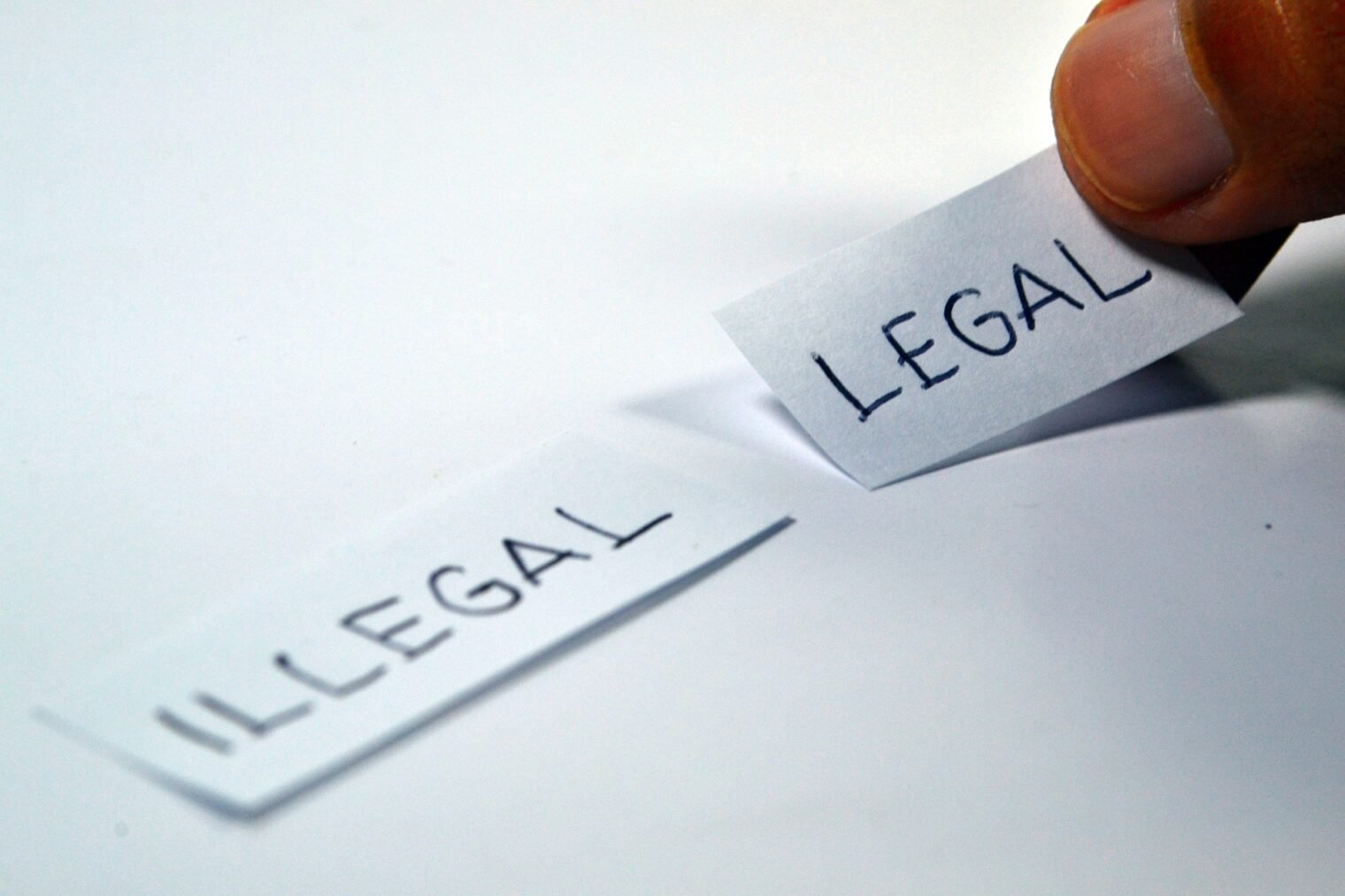Weed Legalization: Exploring the impact on society and economy

Table of Contents
Weed legalization is a hot topic that many people are talking about. Some are excited, while others worry about what it means for their communities. One thing everyone wonders is how this change will affect our society and economy.
Did you know that in some places where weed has been made legal, the government has collected millions of dollars in taxes from its sale? This article will look at the good and bad sides of making weed legal.
We’ll see how it changes what people think, affects crime rates, and brings in money for states. Get ready to learn something new!
The History and Current Status of Weed Legalization
Weed legalization has a complex history with an evolving global timeline. The United States, in particular, has seen significant shifts in its approach to marijuana laws across various jurisdictions.
Global legalization timeline
Countries around the world started changing their views on weed legalization at different times over the past few decades. Uruguay made history in 2013 by becoming the first country to fully legalize marijuana for recreational use.
This bold move set off a wave of policy reforms across the globe. Following Uruguay’s lead, Canada became the second country to legalize recreational marijuana in 2018, showing a growing trend towards acceptance and decriminalization of cannabis.
Several other nations have since altered their laws to allow for medical marijuana use, decriminalize possession of small amounts, or fully legalize both medicinal and recreational cannabis.
These changes reflect a significant shift in how societies view drug policy and mark an ongoing transition from strict prohibition to regulated legalization. Countries are now exploring new ways to manage drug use, focusing on public health rather than criminalization, signaling a major change in international attitudes toward cannabis legalization.
Legalization in the United States
The United States has experienced a complex history of weed legalization, with the first state to legalize recreational marijuana being Colorado in 2012. Currently, there are 18 states, along with the District of Columbia, where recreational use is legal.
Moreover, medical marijuana programs have been established in 37 states across the country. The impact has varied significantly on different jurisdictions within the U.S., as some have witnessed substantial economic growth through tax revenue and job creation, while others continue to navigate legislative complexities and challenges within the cannabis industry.
Looking Ahead: Societal and Economic Implications of Weed Legalization
Impact on different U.S. jurisdictions
Weed legalization has varied impacts across different U.S. jurisdictions, influencing state economies and social dynamics in unique ways. Some states have seen an increase in tax revenue and job opportunities due to the legal marijuana industry, while others have experienced shifts in law enforcement priorities and criminal justice systems.
Each jurisdiction’s approach reflects the complex interplay between local attitudes, regulatory frameworks, and economic considerations, shaping how weed legalization unfolds at a regional level.
Moving on to “Societal Impact of Weed Legalization”…
Societal Impact of Weed Legalization
Weed legalization has led to changes in public perception and acceptance. The criminal justice system has also been affected by the shift in drug arrest rates.
Changes in public perception and acceptance
Public perception and acceptance of marijuana legalization have shifted dramatically in recent years. More people are viewing cannabis as a legitimate form of medication, leading to increased support for its decriminalization and legalization.
Additionally, the portrayal of marijuana in popular culture has played a role in changing public attitudes toward the drug. Media representation and educational campaigns have also contributed to altering societal views on marijuana use, influencing a more accepting stance towards its recreational and medicinal use.

Effect on criminal justice system and drug arrests
Weed legalization has significantly impacted the criminal justice system and drug arrests. Many states have seen a decrease in marijuana-related arrests, leading to reduced strain on law enforcement resources and court systems.
Additionally, legalization has allowed for the reallocation of resources towards more pressing issues, impacting drug laws in many jurisdictions.
The societal attitudes toward marijuana have shifted substantially due to its decriminalization and legal status in certain areas. This shift has prompted changes within the criminal justice system, from policing to corrections and beyond.
As such, weed legalization continues to shape the way authorities approach drug-related offenses and arrests.
Religious views on legalization
Some religious groups view the legalization of weed as a moral issue that conflicts with their beliefs. Others advocate for compassion and empathy towards those who use cannabis, especially for medical reasons.
Some religious leaders argue that marijuana’s potential negative effects on health and behavior conflict with their teachings, while others emphasize principles of justice and healing in support of decriminalization.
The debate among different religious communities reflects varying interpretations of ethical responsibilities and social welfare.
Economic Impact of Weed Legalization
Weed legalization has brought about a significant economic impact, including tax revenue generation and job creation within the legal cannabis market. Want to learn more?
Tax revenue and job creation
Legalizing weed has led to significant tax revenue and job creation in many places. States that have legalized cannabis have seen substantial increases in tax revenue from sales. This extra income benefits various government initiatives, including education and public health programs, contributing positively to the local economy.
Additionally, legalizing weed has spurred job creation within the industry itself, as well as in related sectors such as retail, agriculture, and tourism. The marijuana market’s growth has opened up opportunities for employment and entrepreneurship, providing a boost to local economies through job opportunities and economic stimulation.
Shift from illegal market to legal market
Weed legalization has prompted a significant shift from the illegal market to the legal market. This transition has resulted in increased regulation, quality control measures, and consumer protection.
The move towards a legal market has also led to economic opportunities and the creation of new jobs within the industry. Additionally, it has allowed for taxation on marijuana products, contributing to government revenue and supporting public services.
Moving forward with this discussion of weed legalization’s economic impact, let’s explore the challenges and controversies in the industry.
Challenges and controversies in the industry
The legalization of weed has brought forth a myriad of challenges and controversies in the industry. From product safety and labeling regulations to advertising restrictions, navigating the ever-evolving legal landscape requires careful attention to detail.
Moreover, disparities between state and federal laws continue to underpin the complexities faced by businesses operating in this realm. These factors contribute to a daunting environment for entrepreneurs seeking more than just financial gain from their endeavors in the cannabis market.
Not only are companies diving into uncharted territory, but they also must unravel the secrets of stringent regulatory compliance on local, state, and national levels. This involves tailored strategies towards quality control measures that ensure consumer safety without hindering product accessibility.
Future of Weed Legalization
The future of weed legalization holds exciting potential as current trends indicate a shift towards further legalization. As regulations and laws evolve, the role of government and law enforcement in the industry will continue to transform.
Current trends and potential for further legalization
Current trends point to a growing acceptance of marijuana legalization worldwide. More countries and U.S. states are considering or passing laws to decriminalize or legalize the use and sale of cannabis, reflecting changing attitudes towards its status as a controlled substance.
As public opinion continues to shift in favor of reform, there is potential for further expansion of legalization efforts, especially with the increasing evidence supporting the medicinal benefits of cannabis.
Moreover, ongoing discussions and debates surrounding regulatory frameworks suggest that future legalization could bring about significant changes in how marijuana is produced, distributed, and consumed.
Evolution of regulations and laws
Laws and regulations surrounding weed legalization have evolved significantly over the years. The shift from prohibition to decriminalization and legalization has led to a complex web of rules governing its production, sale, and use.
As society’s views on marijuana continue to evolve, lawmakers are constantly adapting these regulations in response to changing public attitudes and new industry challenges. The ever-evolving legal landscape reflects the delicate balance between ensuring public safety and addressing the growing demand for access to cannabis products.
Moving forward, it is crucial for legislators to remain responsive to societal changes while also crafting regulations that support a thriving yet responsible cannabis industry. This involves carefully tailoring laws to address issues such as product safety, distribution methods, advertising restrictions, and taxation.
As this evolution continues, stakeholders will need to navigate an intricate legal framework designed to enhance consumer protection without stifling market growth.
Role of government and law enforcement in the industry
Government and law enforcement play a crucial role in regulating the legal weed industry. They oversee licensing, quality control, and taxation. Additionally, they enforce regulations to ensure compliance with state laws and public safety.
This involvement helps to create a regulated market while addressing concerns such as product safety and preventing illegal distribution. The government’s oversight can provide stability and accountability within the industry, allowing for its continued growth.
Law enforcement also works to combat illegal marijuana operations that may still exist despite legalization efforts. This involves investigating illicit activities related to production, distribution, or sales of marijuana outside of legal parameters set by the government.
Weed Legalization in 2024
Weed legalization has brought about significant changes in society and the economy. Public perception and acceptance have shifted, impacting criminal justice systems and drug arrests.
Moreover, tax revenue and job creation have increased while challenges in the industry persist. The future holds potential for further legalization with evolving regulations. This topic is of great importance, offering practical solutions that can lead to substantial improvements and success.
For those seeking more than just information, additional resources are available for continued learning beyond this article. Reflecting on these changes may motivate individuals to take action within this ever-evolving realm.


